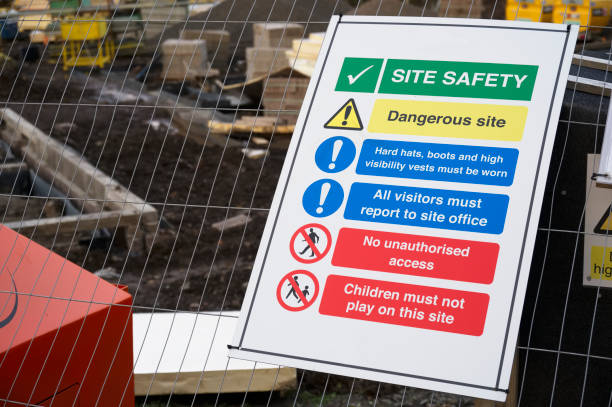When it comes to construction, safety is non-negotiable. Having the right safety equipment can make all the difference in protecting your workers and ensuring compliance with regulations. Here’s how to find a supplier that meets your construction safety needs.
Assess Your Safety Requirements
Identify Specific Needs
Before choosing a supplier, assess your construction site’s safety requirements. Consider the types of hazards your workers face and the specific safety equipment needed to mitigate risks. This could include hard hats, safety glasses, respirators, harnesses, and more.
Regulatory Compliance
Ensure that the safety equipment supplier meets regulatory standards and certifications relevant to your industry. Compliance with OSHA (Occupational Safety and Health Administration) regulations is crucial for ensuring the effectiveness and legality of the equipment.
Evaluate Supplier Reliability and Reputation
Industry Experience
Look for a supplier with experience in the construction industry. Experience indicates knowledge of construction safety requirements and the ability to provide suitable equipment.
Customer Reviews and References
Check customer reviews and ask for references from other construction companies. Positive feedback and testimonials can provide insights into the supplier’s reliability, customer service, and the quality of their products.
Product Quality and Range
Quality Standards
Ensure that the safety equipment supplier offers products that meet high-quality standards. Look for reputable brands and certifications that guarantee the durability and effectiveness of the equipment.
Range of Products
Choose a supplier that offers a wide range of safety products to cater to different construction hazards and job roles. This includes personal protective equipment (PPE), fall protection systems, first aid kits, and more.
Pricing and Value
Competitive Pricing
Compare prices from different suppliers while considering the quality of the products and services offered. Avoid compromising on safety for lower costs, but seek competitive pricing that fits your budget constraints.
Value-added Services
Consider suppliers that offer value-added services such as equipment training, maintenance support, and bulk purchasing discounts. These services can enhance the overall value and efficiency of your safety equipment procurement.
Customer Support and Service
Availability and Responsiveness
Choose a supplier that provides responsive customer support and quick turnaround times for orders and inquiries. Reliable communication and availability are crucial for addressing urgent safety equipment needs.
Training and Support
Evaluate if the supplier offers training programs for using and maintaining safety equipment. Proper training ensures that your workers understand how to use the equipment effectively and safely.
Conclusion
Choosing the right safety equipment supplier for your construction needs requires careful consideration of safety requirements, supplier reliability, product quality, pricing, and customer support. By selecting a supplier that prioritizes safety, compliance, and customer satisfaction, you can ensure a safer working environment for your construction team. Take the time to evaluate your options and make an informed decision that aligns with your safety goals and budget.
Here’s a FAQ section to complement the guide on choosing the right safety equipment supplier for construction needs:
1. Why is it important to choose a safety equipment supplier with industry experience?
Industry experience indicates knowledge of construction safety requirements and the ability to provide appropriate solutions. It ensures that the supplier understands the unique challenges of construction environments and can recommend suitable safety equipment.
2. How can I ensure that a safety equipment supplier meets regulatory standards?
Ensure that the supplier complies with OSHA regulations and other relevant standards by requesting documentation and certifications. This ensures that the safety equipment is legally compliant and meets safety standards.
3. What factors should I consider when evaluating the quality of safety equipment?
Look for safety equipment that meets recognized quality standards and certifications. Check for durability, reliability, and effectiveness in protecting against specific hazards encountered on construction sites.
4. How can I determine if a safety equipment supplier offers competitive pricing?
Compare prices from multiple suppliers while considering the quality and reliability of their products and services. Look for suppliers that offer transparent pricing and competitive rates without compromising on safety standards.
5. What additional services should I look for in a safety equipment supplier?
Consider suppliers that offer value-added services such as equipment training, maintenance support, and bulk purchase discounts. These services can enhance the overall value and efficiency of your safety equipment procurement.
